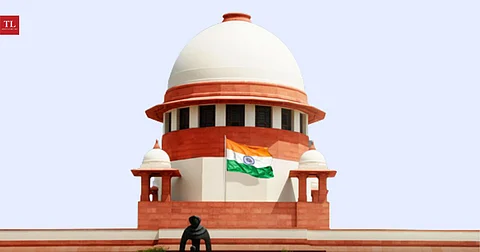

A Supreme Court bench of Justices R. Subhash Reddy and Hrishikesh Roy held on Tuesday that in absence of any evidence to show meeting of minds between the conspirators, it is not safe to hold a person guilty for offences under Section 120B (punishment of criminal conspiracy)of the Indian Penal Code.
"A few bits here and a few bits there on which prosecution relies, cannot be held to be adequate for connecting the accused with the commission of crime of criminal conspiracy. Even the alleged confessional statement of the co-accused, in absence of other acceptable corroborative evidence, is not safe to convict the accused", the bench observed.
In the instant case, Parveen @ Sonu vs. The State of Haryana, both the Additional Sessions Judge, Rewari and the Punjab and Haryana High Court had found the appellant guilty of conspiracy, along with four other accused, who had allegedly tried to flee from the police custody, by injuring the police party, one of whom died subsequently. Two of the accused were held guilty for commission of offence under Section 25 of the Arms Act, and were sentenced to life imprisonment.
Interestingly, the four remaining accused chose not to appeal against the High Court's dismissal of their appeals, in its common judgment. The Supreme Court's granting of relief to only the third accused, because he chose to appeal against the High Court's verdict, has raised questions about the guilt of the other accused, who were convicted for the same offence of conspiracy.
The counsel for the appellant before the Supreme Court contended that the prosecution did not examine any independent witness, although there were about 50-60 passengers in the train compartment where the attack on the police party took place. Out of the four young boys who boarded the train in which the accused were being taken from jail to the court, only one was found to have a country made pistol and to have fired. No Test Identification Parade was conducted.
Finally, the bench relied on the Supreme Court's previous decision in Indra Dalal vs. State of Haryana (2015), wherein it was stated that confessions that are extorted by the police officers by practising oppression and torture or even inducement are unworthy of any credence. In this case, the court held that in terms of Section 26 of the Indian Evidence Act, when a person is in police custody, the confession made by him even to a third person, that is, other than a police officer, shall also become inadmissible.
The High Court's conviction and sentencing of the other four accused, who chose not to appeal against it, has come under a cloud, following the Supreme Court's strictures.
"In the case on hand, a perusal of the judgment of the High Court reveals that except referring to depositions, High Court has not considered the evidence at all and confirmed the conviction and sentence as ordered by the Trial Court", the bench has held.
Allowing the appeal, the bench set aside the sentence imposed on the appellant by the High Court, and acquitted him of the charges levelled against him, besides ordering his release from custody, unless it is required in connection with any other case.